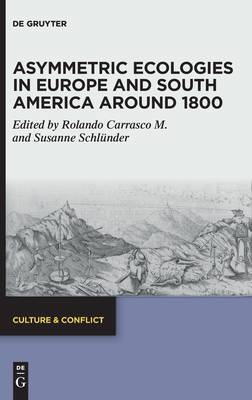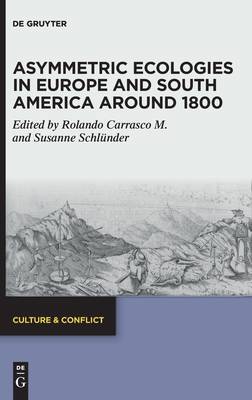
- Afhalen na 1 uur in een winkel met voorraad
- Gratis thuislevering in België vanaf € 30
- Ruim aanbod met 7 miljoen producten
- Afhalen na 1 uur in een winkel met voorraad
- Gratis thuislevering in België vanaf € 30
- Ruim aanbod met 7 miljoen producten
Zoeken
Asymmetric Ecologies in Europe and South America Around 1800
€ 185,45
+ 370 punten
Omschrijving
This volume proposes new ways of understanding the historical semantics of the relationship between humans and nature in South America in the eighteenth and early nineteenth centuries. The authors in this volume use the notion of asymmetry to discuss the representations of and forms of knowledge about nature circulating in, and about, colonial and postcolonial South America. They argue that the production of knowledge about the American natural space widened the power gap between the Europeans colonizers and the local population. This gap, therefore, rests on what we call 'asymmetric ecologies': Eurocentric epistemic orders excluded forms of indigenous, mestizo, and Creole knowledge about nature. By looking at literary as well as non-literary sources, such as natural histories, travel narratives, encyclopaedias or medical writing, the essays in this volume trace the origins of new theoretical paradigms (ecocriticism, biopolitics, transarea studies, etc.), and examine the regional cultural, identity, and epistemic conflicts that undercut the Eurocentric narrative of enlightened modernity.
Specificaties
Betrokkenen
- Uitgeverij:
Inhoud
- Aantal bladzijden:
- 332
- Taal:
- Engels
- Reeks:
- Reeksnummer:
- nr. 21
Eigenschappen
- Productcode (EAN):
- 9783110738186
- Verschijningsdatum:
- 1/08/2022
- Uitvoering:
- Hardcover
- Formaat:
- Genaaid
- Afmetingen:
- 152 mm x 231 mm
- Gewicht:
- 635 g

Alleen bij Standaard Boekhandel
+ 370 punten op je klantenkaart van Standaard Boekhandel
Beoordelingen
We publiceren alleen reviews die voldoen aan de voorwaarden voor reviews. Bekijk onze voorwaarden voor reviews.







